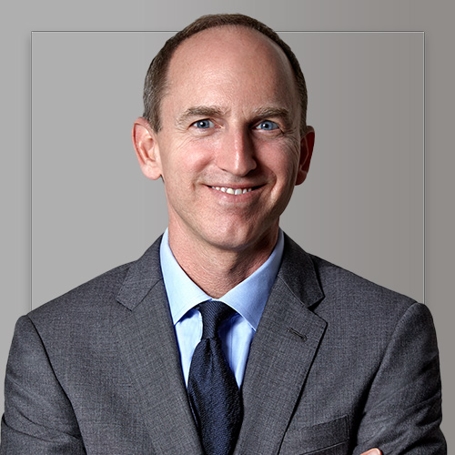

Native American Indian Health Insurance Denials
This page addresses healthcare options for Native American Indians, a variety of government assistance programs, access to Covered California, CHIP and traditional healing practices, what to do in the event of a claim denial, and more.
Page Contents:
- How Many American Indians in California Have No Health Insurance?
- Does California Require American Indians to Have Health Insurance?
- Do American Indians Have a Higher Rate of Chronic Diseases Like Heart Disease and Diabetes?
- What About Medicare for Native Americans?
- What is the Indian Health Services (IHS)?
- What Is an IHS Purchased/Referred Care Authorization?
- Are Health Insurance and IHS Services the Same?
- What is the Indian Health Care Improvement Act?
- Can Native Americans Access Covered California?
- Does the Children’s Health Insurance Program Cover Native Americans?
- Can Native Americans Access Medi-Cal Health Insurance?
- When Can Native Americans Sign Up for Health Insurance?
- Is Native American Health Insurance Expensive?
- What Do I Do If I Get a Health Insurance Claim Denial?
- How Can the Law Offices of Scott Glovsky Help?
How Many American Indians in California Have No Health Insurance?
Census numbers indicate that American Indians and Alaska Natives comprise nearly three percent of the total U.S. population. More than 50 percent of the total American Indian population lives in five states in the United States. Oklahoma has approximately 14 percent of the total American Indian population, Arizona has about 13 percent, California has approximately 11 percent, New Mexico has almost 10 percent, and Texas has close to 5 percent.
Although the uninsured rate among non-elderly Native American Indians decreased from 32.4 percent in 2010 to 19.9 percent in 2022, this population continues to have the highest uninsured rate compared to other racial and ethnic populations. The Affordable Care Act (ACA) was the primary reason for the decrease in the uninsured American Indian population, yet American Indians today are nearly three times as likely as white Americans to be uninsured.
Persistent health disparities make the situation even worse, as American Indians have significantly higher rates of diabetes, liver disease, respiratory diseases, and suicide compared to other racial and ethnic groups. A much higher percentage of American Indian adults aged 18 and older are in poor health (almost 20 percent) as compared to all adults in the U.S., at 14.5 percent.
Poverty, limited access to healthcare, and high unemployment rates stemming from historical inequities are more common among American Indians, and not having health insurance coverage can prevent tribal members from seeking necessary health care. While the ACA and Medicaid expansion have increased options for many American Indians in California, determining eligibility for different types of health insurance can be confusing for everyone.
Even more frustrating and confusing is receiving a denial of a health insurance claim. When you find insurance you are eligible for, complete the sign-up process and basically do everything right, yet your insurer denies your claim when you need it most, it can feel demoralizing. Claim denials can also potentially damage your health when you fail to get the medical care you need.
If you find yourself in such a situation, you need a strong legal advocate in your corner – one who is not afraid to go up against a huge insurance company and one with a solid history of success in fighting insurance companies. Attorney Scott Glovsky has been assisting Californians in similar situations for over two decades. He aggressively holds insurance companies accountable while fighting for his clients.
Key Takeaways: The uninsured rate for Native American Indians is as high as 20 percent. Knowing your health insurance options and having a strong legal advocate in the event of a health claim denial are crucial.
Does California Require American Indians to Have Health Insurance?
Although California has an individual mandate that requires most residents to carry health insurance, there are exemptions for members of federally recognized tribes. American Indians and Alaska Natives are not required to purchase health insurance, and there is no penalty for those who do not have it. The exemption is tied to the unique legal status of Native Americans and the historical relationship between the United States and tribal nations, which includes the provision of healthcare services. That said, many Native Americans do have access to healthcare services through the IHS, which is separate from and not tied to the Affordable Care Act.
Key Takeaways: While most residents of California are required to carry health insurance, exemptions exist for members of federally recognized tribes.
Do American Indians Have a Higher Rate of Chronic Diseases Like Heart Disease and Diabetes?
American Indians have a significantly higher rate of several chronic diseases. In 2023, American Indians were 1.5 times more likely to be diagnosed with diabetes and significantly more likely to experience severe complications from diabetes, such as end-stage renal disease. Factors contributing to this disparity in diabetes rates include poverty, obesity, physical inactivity, and limited access to healthcare. Heart disease rates are also considerably higher among Native Americans, with some studies indicating rates that are 50 percent higher than in white populations. Diabetes can be a significant contributing factor to heart disease, along with obesity, high cholesterol, and high blood pressure.
What About Medicare for Native Americans?
Medicare eligibility is based solely on age, disability, or specific, serious conditions, such as end-stage renal disease. Recipients must be 65 or older to access Medicare, have a chronic, debilitating condition, or be considered disabled. Many Native Americans are eligible for both Medicare and Medicaid.
The Centers for Medicare & Medicaid Services (CMS) is a federal agency within the U.S. Department of Health and Human Services that works closely with tribal governments to ensure programs continue to address the unique needs of Native Americans. Efforts are currently in progress to strengthen tribal relationships with Medicare to ensure culturally appropriate healthcare.
What is the Indian Health Services (IHS)?
The Indian Health Services (IHS) is a federal agency within the US Department of Health and Human Services. It provides healthcare services to American Indians and Alaska Natives. The IHS delivers direct healthcare through its own facilities, including some preventive services, while also providing funding for tribal and urban Indian health programs. IHS is not a health insurance provider and does not offer all the benefits associated with health insurance.
When Native Americans use Indian Health Providers, they should not pay any costs, including deductibles, co-insurance, or co-payments, although some programs have monthly fees. For those with limited incomes, there may be help paying costs through the Extra Help or Medicare Savings Programs (MSPs).
There are four types of MSPs, with different eligibility requirements and benefits:
- The Qualified Disabled and Working Individuals (QDWI) Program helps pay for Medicare Part A premiums.
- Qualified Medicare Beneficiary (QMB) Program helps pay for Medicare Part A and Part B premiums, deductibles, co-insurance, and co-payments.
- The Qualifying Individual (QI) Program helps pay for Medicare Part B premiums only, granted on a first-come, first-served basis, and reapplication is required annually.
- The Specified Low-Income Medicare Beneficiary (SLMB) program helps pay for Medicare Part B premiums.
Eligibility for MSPs is based on income and resource limits, which vary by state. When applying for an MSP, you can also apply for Extra Help (Part D Low-Income Subsidy) at the same time.
What Is an IHS Purchased/Referred Care Authorization?
When a local IHS facility cannot provide necessary healthcare services to an American Indian and that person requires medical care outside an IHS or tribal health facility, a document known as an IHS Purchased/Referred Care (PRC) Authorization is issued. The PRC Authorization is not automatic; the individual must meet specific requirements, including medical priority, residency, notification, and the use of other available resources. Patients must be enrolled members of a federally recognized tribe in order to receive a PRC Authorization.
Patients must notify the PRC program within a specific timeframe (usually 72 hours) of seeking emergency care outside a tribal facility or an IHS. The need for the care must be medically necessary and fall within established medical priority parameters. In short, the PRC authorizations are issued for medical or dental care that cannot be provided by the patient’s local IHS or tribal facility, and they are part of the IHS program meant to help bridge the gap in healthcare services.
All available resources, including private insurance, local IHS facilities, and federal and state programs, must be utilized before a PRC authorization is considered. A tribal provider or IHS provider first refers the patient for outside care. If the referral meets PRC requirements, an authorization (Form IHS-843-1A) is issued. The authorized services are scheduled and provided by the non-IHS provider, who then submits the authorization form and Explanation of Benefits to the PRC program for payment.
Are Health Insurance and IHS Services the Same?
Health insurance covers the healthcare services that are part of your plan, protecting you from paying the full costs of medical services when you are injured or sick. While health insurance allows you to see a specialist, receive healthcare when you are away from home, and access healthcare for covered services without an IHS Purchase Referred Care Authorization, IHS does not.
The responsibility of IHS comes from treaties, federal law, and the government-to-government relationship between the Tribal Nations and the United States. It is estimated that the IHS serves more than 2.5 million American Indians and Alaska Natives across the United States, and as a direct provider of healthcare, it is not considered health insurance.
Key Takeaways: IHS provides direct healthcare to Native Americans through its own facilities, but it is not a health insurance provider and does not offer all the benefits typically provided through health insurance.
What is the Indian Health Care Improvement Act?
The Indian Health Care Improvement Act (IHCIA) is a federal law that was enacted in 1976. The IHCIA aimed to improve the overall healthcare system for American Indians and Alaska Natives. This was accomplished primarily through the establishment of IHS as the primary provider of healthcare. The Act expanded the scope of services provided by the IHS, including substance abuse treatment, preventive care, and mental health services.
The IHCIA emphasized tribal involvement in healthcare decisions, with the goal of allowing tribes to manage their own health programs. The Act allowed the IHS to bill Medicare and Medicaid for services provided to American Indians and Alaska Natives, while authorizing the establishment of urban American Indian health centers. The IHCIA was reauthorized in 2000 and in 2010 as a part of the Affordable Care Act. While the IHCIA has led to improved quality of care and greater tribal involvement in healthcare decisions, challenges remain, including workforce shortages and funding disparities.
Can Native Americans Access Covered California?
The IHS is not directly tied to the Affordable Care Act, which falls under Covered California in the state, yet American Indians and Alaska Natives can access Covered California, including the cost-sharing reductions and the reduction or elimination of out-of-pocket costs (deductibles, co-pays, and co-insurance). American Indians and Alaska Natives are not restricted to the standard open enrollment period; eligible individuals can enroll or change their Covered California plan at any time of the year.
Does the Children’s Health Insurance Program Cover Native Americans?
Native American children can access healthcare through the California Children’s Health Insurance Program (CHIP). CHIP provides access to a wider range of services than those available through IHS or tribal organizations. The child's family must meet the income and other eligibility requirements set by the state. If these requirements are met, Native American children will incur no premiums, enrollment fees, or other costs.
Enrolling in CHIP can actually generate revenue for tribal health programs, which can be used to improve or expand services. Native American children enrolled in CHIP can continue receiving care from the local Indian health clinic if they choose. Special enrollment periods enable members of federally recognized tribes to enroll in CHIP at any time.
Can Native Americans Access Medi-Cal Health Insurance?
Medi-Cal in California encompasses both Medicaid and Medicare. These programs can play a significant role in the healthcare coverage for Native Americans. Medicaid is a crucial source of funding for IHS and tribal health systems, supporting their operations and improving access to care. Native Americans are generally eligible for Medicaid based on the same criteria as other individuals, but there may be unique provisions related to income and tribal affiliations. Some states have been granted waivers to allow Medicaid to cover traditional Native American health practices, further enhancing access to culturally appropriate healthcare.
California is one of these states; Medi-Cal is allowed to cover traditional Native American health practices as a part of a broader initiative in California, Arizona, New Mexico, and Oregon to include traditional healing practices of American Indians. The waiver allows Medi-Cal to reimburse for traditional healing services (such as sweat lodges, music therapy, dancing, etc.) provided by IHS facilities. These healing practices are deeply rooted in cultural practices, and their implementation has been shown to improve health outcomes.
When Can Native Americans Sign Up for Health Insurance?
While most individuals can only sign up for certain health insurance programs, including Covered California, during specific enrollment dates, members of federally recognized tribes have an exemption that allows them to purchase or change Marketplace health insurance coverage at any time (monthly), rather than waiting for the yearly open enrollment period.
Non-enrolled family members can also take advantage of this monthly enrollment if they are included on the same application. This means that Native Americans can enroll in Medi-Cal, CHIP, and Covered California at any time, even during a health crisis. The exemption for Native Americans remains in effect as long as tribal status and eligibility for services remain unchanged.
Key Takeaways: To recap, in the state of California, Native Americans have several health insurance options, including those offered through Covered California (ACA), Medi-Cal (Medicaid), employer-sponsored health insurance, and the Indian Health Service (IHS). Medi-Cal, the state’s Medicaid program, may offer exemptions from premiums, co-pays, and deductibles, while Covered California (ACA) may offer financial assistance to reduce costs. The IHS provides direct healthcare services and funding for tribal and urban American Indian health programs.
Is Native American Health Insurance Expensive?
Native Americans whose income is between 100 and 300 percent of the federal poverty level can enroll in zero-cost-sharing plans with no out-of-pocket expenses for services received from a Native American health provider or through a referral to a Qualified Healthcare Professional.
Covered California may be available with reduced cost-sharing for those who qualify. Additionally, being a member of a federally recognized tribe or eligible for services from a Native American healthcare provider often qualifies individuals for Medi-Cal with no premiums or out-of-pocket costs. Limited or zero cost-sharing plans are an important option for receiving low-cost healthcare coverage.
What Do I Do If I Get a Health Insurance Claim Denial?
The steps taken to appeal a healthcare claim denial for Native Americans are generally the same as for any individual, although the process can be different, depending on where the insurance originates from. Those with health insurance through an employer should carefully review the denial letter to understand the specific reason for the denial.
If the reason is due to incomplete information or an error in paperwork, this can be addressed, and the claim can be resubmitted. If the denial letter states that the procedure, treatment, or prescription drug is “not medically necessary,” “experimental,” or “investigational,” this too often means that it is expensive, and the insurer does not wish to cover the cost. In some cases, the provider may have been out-of-network, or the treatment, procedure, or prescription drug required prior authorization.
An internal appeal can be filed with the insurance company, essentially requesting that the company reconsider the claim and change the denial to an approval. There is usually a specific timeframe during which an internal appeal can be filed, typically 180 days from the date the denial was received. If this internal appeal is unsuccessful, an external appeal can be filed with an independent third party. An external appeal must usually be requested within 60 days of the internal denial notice. Standard external reviews typically take up to 60 days to complete, while expedited reviews are usually completed within four business days for urgent cases.
Native Americans may seek legal help from an experienced California insurance denial attorney or through an organization like the Native American Rights Fund or the California Indian Legal Services. The Tribal Civil and Criminal Legal Assistance Program may also offer assistance. If the denial involves services from the Indian Health Service or a tribal program, a specific appeal process is available, which involves appealing to the Service Unit Director, the Area Director, and the IHS Director.
Native Americans enrolled in Medi-Cal have the same appeal rights as any other Medi-Cal beneficiary. This includes filing an appeal with the Medi-Cal managed care plan, typically within 60 days of receiving the Notice of Action. The appeal can be filed orally or in writing, but those filed orally may require a signed, written appeal as well. If waiting for a standard appeal could seriously jeopardize the health of the covered person, an expedited appeal can be filed, which requires a response within 72 hours.
If the managed care plan denies the internal appeal or fails to respond within 30 days, the individual can request a state hearing through the California Department of Social Services. If the plan is licensed under the Knox-Keene Act, an Independent Medical Review from the Department of Managed Health Care may be required. State hearing requests can be made by submitting the proper form or calling a toll-free number.
Denied claims can significantly worsen the health disparities experienced by Native Americans, making persistence and advocacy crucial in the face of a claim denial. There are legal protections related to health insurance and appeals, and it is essential to consult specific laws governing the various forms of health insurance.
How Can the Law Offices of Scott Glovsky Help?
Regardless of how you obtain your health insurance, claim denials can be a common yet frustrating part of the claims submission process. When your doctor believes you need a specific treatment or prescription drug, yet your insurance company refuses to pay, you need a strong legal advocate who has a long history of success against big insurance companies. Attorney Scott Glovsky has successfully challenged health insurers such as Anthem Blue Cross, Blue Shield of California, Healthnet, Kaiser, Aetna, and UnitedHealthcare.
Like most of us, you buy insurance for peace of mind, hoping you will never need it. In return, you trust that the insurance company will be there should that change, and you do need it. Unfortunately, the television ad portrayals of insurance companies as your friend – someone you can count on in your time of need – is too often rarely the reality. Insurance companies are often primarily interested in their financial bottom line, which makes them experts at delaying and denying claims and finding any loophole that exists.
Attorney Scott Glovsky and his legal team have made it their mission to ensure that each client is taken care of and that the insurer fulfills its promises. Scott will take on any act of bad faith on the part of an insurer, forcing the company to fulfill its promises to you and other policyholders.
Contact the Law Offices of Scott Glovsky today to speak to Scott about your insurance claim denial.

Meet Our Team
If Results Matter, Then Hire Us

Our Case Results
Relentlessly Tough, Relentlessly Personal
Scott began representing policyholders instead of insurance companies in 1999 and has consistently sought justice for his clients in ways other firms cannot. Scott is passionate about helping policyholders obtain treatments, coverage, and reimbursement from California insurance companies, including Aetna, Anthem Blue Cross, Blue Shield of California, Health Net, Kaiser Permanente UnitedHealthcare, and other companies providing insurance.
-
$17.3 Million
On April 30, 2019, a 39-year-old father was fatally injured when his Kia Optima collided with a disabled Los Angeles County Metropolitan Authority (LACMTA) bus on the I-10 freeway's express lane.
-
$14.9 Million
Cowart v. Anthem Blue Cross, et al. Anthem sued for misleading California individual plan members about the doctors in its networks for its ACA (“Obamacare”) plans in 2014.
-
$10 Million
General areas addressed: health insurance; treatment and procedure coverage; physician recommendations; critical organ, brain, cancer or spinal cord issues; and out of network coverage issues.
-
$9.29 Million
Arce v. Kaiser. Kaiser Permanente sued for denying ABA and speech therapy to children with Autism Spectrum Disorders.
-
$8.5 Million
General areas addressed: health insurance; treatment and procedure coverage; physician recommendations; critical organ, brain, cancer or spinal cord issues; and outside of network coverage issues.






